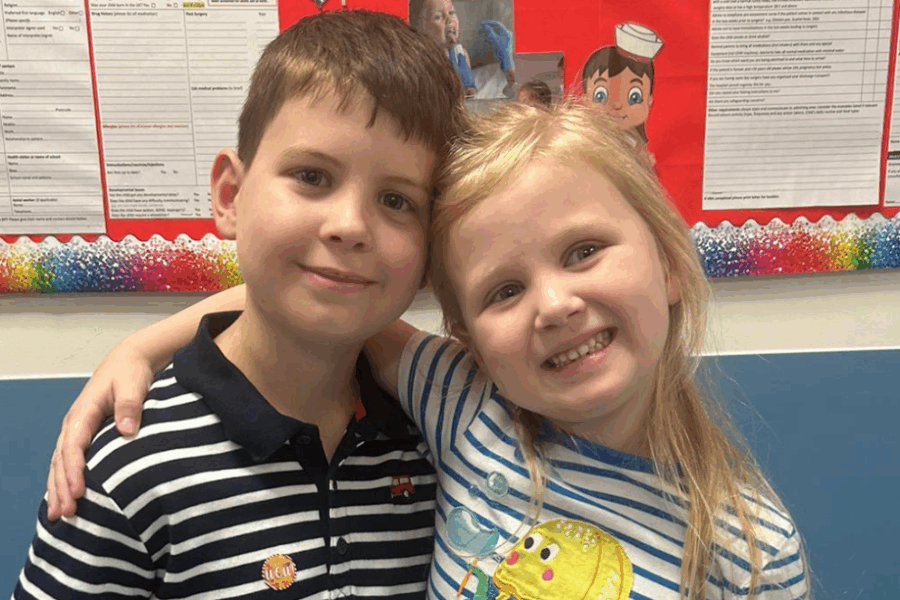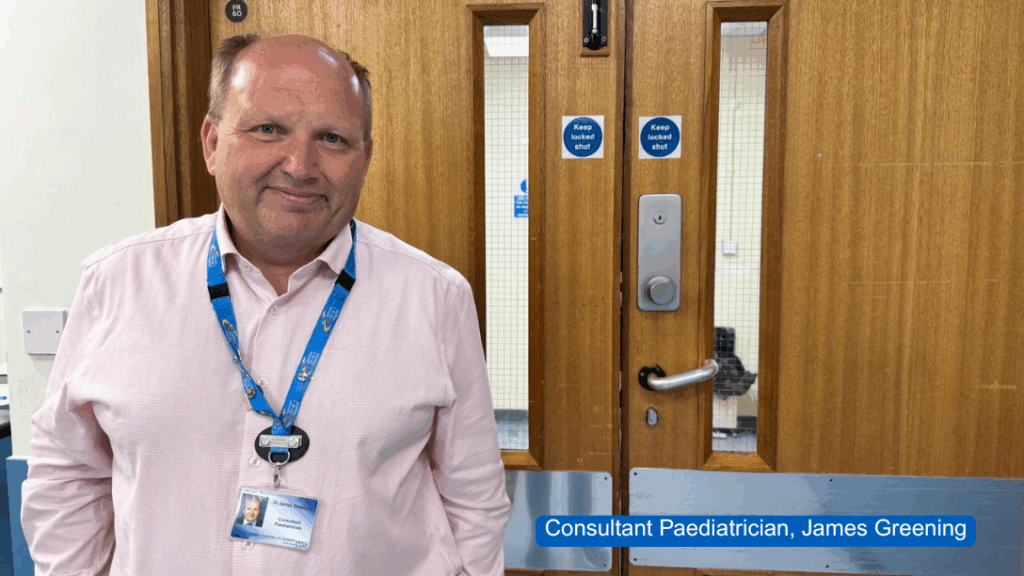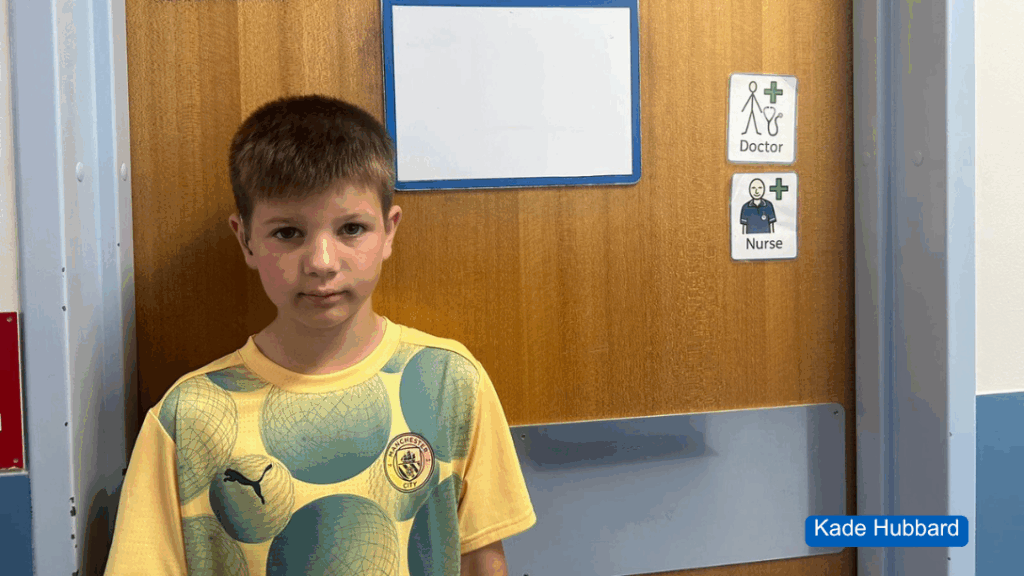
Young patients and their families living with type 1 diabetes have praised the vital work of the University Hospitals of Leicester NHS Trust’s (UHL) paediatric diabetes team, based in the Children’s Development Centre at the Leicester Royal Infirmary
Type 1 diabetes is a condition where the body’s immune system attacks insulin-producing cells causing a shortage of insulin and resulting in high blood sugar levels. It is usually diagnosed in childhood and requires lifelong management.
Five-year-old Hattie Powell (pictured above with brother Rory) was diagnosed earlier this month when her mum Katie noticed her unquenchable thirst when she returned from school. Concerned, Katie performed an at-home urine test which showed high glucose levels, prompting them to head straight to hospital.
Katie said: “When I saw how thirsty Hattie was, I knew something wasn’t right. The urine test confirmed high glucose levels, so we took her to hospital immediately. The team has been incredible from the start, explaining everything clearly and supporting us throughout. Even though Hattie is so young, she’s handled it really well and already understands what it means – it’s almost as if she’s had diabetes for years. The teddy bears with insulin pumps have been a brilliant way to help her understand what’s happening.”

James Greening, Consultant Paediatrician at UHL, explained: “The East Midlands is top of the league when it comes to supporting children with type 1 diabetes. In Leicester, Leicestershire, and Rutland alone, 85% of our young patients use insulin pumps – small devices that deliver insulin continuously, providing a more effective and less intrusive alternative to daily injections. Our goal is to start children on pump therapy as early as possible, helping them to manage their diabetes more confidently and live active lives.”

Another young patient, eight-year-old Kade Hubbard, was diagnosed just weeks before starting primary school and has lived with type 1 diabetes for four years. Kade plays football up to five times a week, so managing his glucose levels is especially important.
His mum, Anna, shared: “We check the data from Kade’s insulin pump every day to monitor his glucose and it adjusts his insulin for what he plans to eat. Kade loves pizza, so the pump’s ability to adjust doses based on food and activity has really helped us take control of his diabetes, and Kade is very involved in managing it himself.”
As Kade grows older, he’s become more aware of the social challenges diabetes can bring. Anna added: “The Highs and Lows peer support group has been fantastic. It helps children with type 1 diabetes connect, so they don’t feel alone. Seeing other kids managing their condition builds confidence and helps normalise their experience.”

UHL Senior Specialist Dietitian, Duane Mellor, plays a vital role in helping children and families understand and manage diabetes in daily life.
Duane said: “We use toys, games, and teddy bears fitted with insulin pumps to explain how the pumps work and what diabetes means in a way children can easily understand. It’s important that children feel empowered by their diagnosis. One way we do that is by introducing them to real-life role models. I’ve said to Kade, ‘If the captain of Real Madrid can manage type 1 diabetes and perform at the highest level, so can you.’ It helps them see that their condition doesn’t limit their potential.”